News
Interview: ‘Spiral’ Screenwriters Colin Minihan & John Poliquin
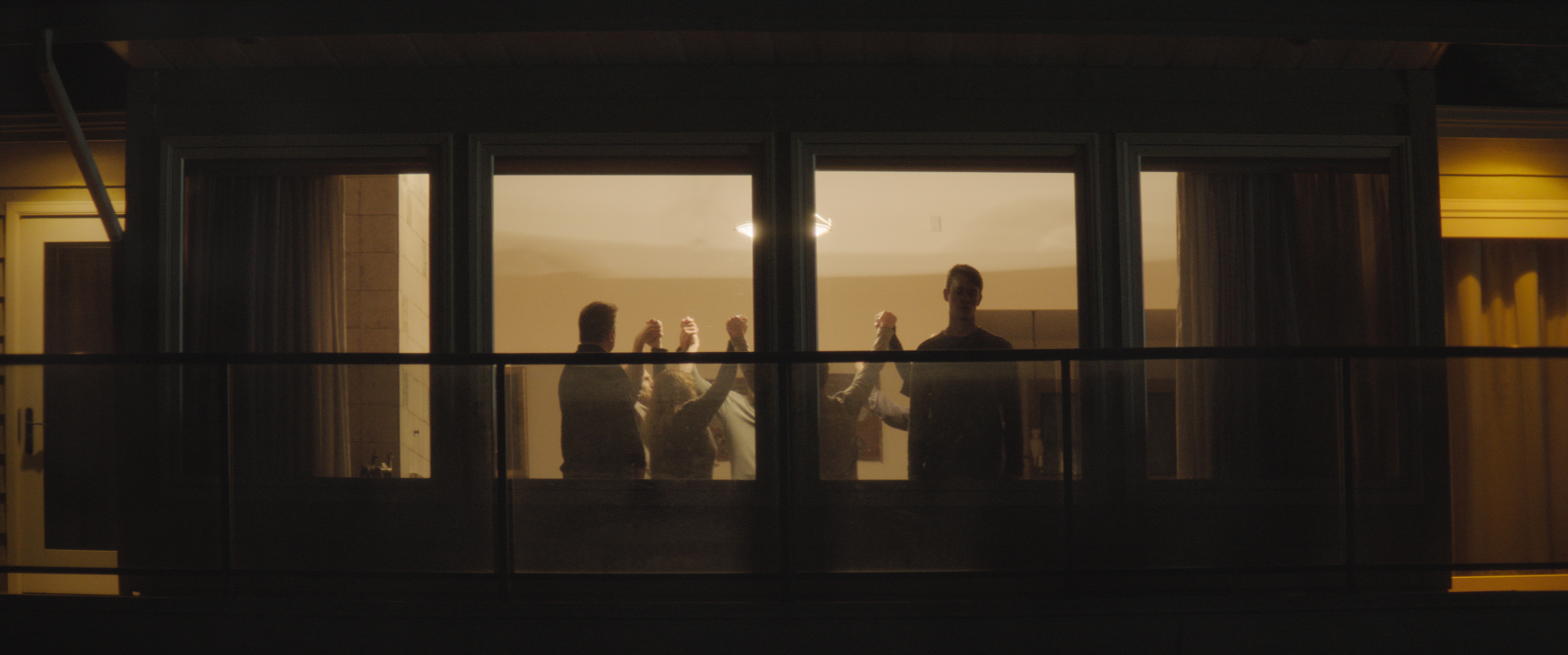
Director Kurtis David Harder’s Spiral is an unnerving psychological horror film about a same-sex couple who move from the big city to a small town with their brooding teenage daughter in tow. While everything seems friendly and idealistic, there’s something shady under the surface. Not to be confused with Spiral: From the Book of Saw, Spiral tackles some heavy themes, addressing homophobia, racism, and mental health, all under no uncertain terms.
Though directed by Harder, Spiral was written by Colin Minihan (Grave Encounters, What Keeps You Alive) and John Poliquin (Grave Encounters 2). I recently had the opportunity to sit down with Minihan and Poliquin to discuss Spiral, cults, queer horror, life in the 90s, and bleak endings.
You can read Waylon’s full review of Spiral, which is streaming now on Shudder.
Kelly McNeely: Where did this script or this idea come from?
John Poliquin: So it was definitely a reaction to the 2016 election and the divisive rhetoric that Trump was using, and just the way it was so viscerally obvious how human beings were being scapegoated, ultimately, to stir up a base. And it was horrific, and obviously it’s not something that hasn’t happened throughout history, you know, we’re aware of it, but it just being so present, we couldn’t ignore it.
We were working on a bunch of ideas, and we’re like, hold on, let’s come up with a concept that takes these themes, puts a horror lens on it, it makes for an entertaining film, but also, it has something to say. And that’s where it came from, really. And also, I’m queer, and Colin and I have been talking about making a tonally grounded horror film that leaned into the supernatural. So we wanted to find something, and I think just those two ideas married in a really interesting way. And so that’s definitely the life of the concept.
Kelly McNeely: Colin, with What Keeps You Alive and Spiral, this the second queer horror film that you’ve done, which I think is fantastic, it’s really important to get those narratives out there. I just wanted to dig into your decision to explore those narratives.
Colin Minihan: I don’t know if I’d come up with any storyline for this film when What Keeps You Alive had its initial premiere, but one of the things that I really took away from just the experience of What Keeps You Alive was seeing how the queer community really embraced and was excited to see representation on screen that felt truly authentic and not exploitive in any way. You know, they weren’t being used for laughs or whatever. And I’ve always kind of asked myself, when the hell is a studio going to make a mainstream horror movie that stars two gay men in a relationship so that we can start to normalize just seeing men be physical and affectionate with one another.
I think so many people — especially what JP was talking about — people that get riled up about “others”. I think a big reason why they get riled up, and why they’re so quick to point, it’s just because they don’t know it, and they haven’t seen enough of it. And so, if we can create empathetic characters that are treated just like any other couple would be, obviously, in [Spiral], they are treated very differently. But if we can depict them in that fashion, then I think we win, because we’re normalizing something that should be fucking normal by now. I think that was a real impetus to wanting to make Spiral. Because there are not many — I think there are more starting to kind of maybe pop up, you’re seeing it a little bit more — movies that follow that kind of relationship at the center, not as a subplot.
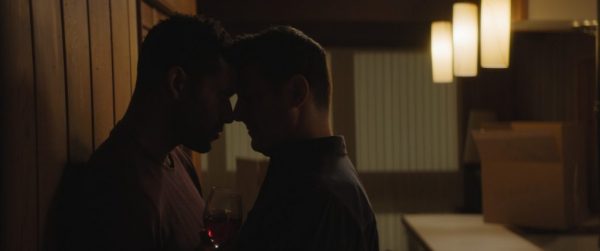
Kelly McNeely: Can you talk a little bit about setting Spiral in the 90s and what made you decide to do that, again, having it be sort of a reaction to the 2016 election?
John Poliquin: I mean, it made sense to set in the 90s. You know, it was a really raw time for the LGBT community. The AIDS epidemic had just ravaged the cities, and there was so much trauma around that, and that was being used or weaponized by a lot of conservatives as a reason to fear gay people and, you know, that they deserved it. And there was a lot of terrible attitudes and almost this, like, justification for treating them like monsters, queer people, especially in smaller communities. And then it was a really unsafe time to be in a rural area, as a gay person in the 90s.
You know, there was the murder of Brandon Teena which was made into a film, Boys Don’t Cry, and then you know, Matthew Shepard, so there was all these high profile, terrible murderers that were happening, and they weren’t really getting the mainstream public outcry at the time. Now they have become this big thing, but in the 90s, it was very much kind of swept under the rug like, “well, they kind of deserved it” was a lot of the attitude.
So I think just with all those things in mind, it was just such a raw time and it made sense for us to set the film there. As well as, I think, the isolation, I think there’s something about the 90s pre-social media that created this totally isolated situation for Malik to be in. Not only is he isolated from the community, but he becomes isolated by his family, and he has no real connection outside of the town. So I think all those things.
Kelly McNeely: I think the technology really plays into it in a big way. Because you get so used to seeing tech in modern horror movies, technology that’s used to unify people. But I think that idea, again, of making it so it’s very difficult to connect with others to figure out what’s going on, you can sort of play into that a little bit.
John Poliquin: Yeah, I mean, Colin and I are children of the 90s. So it’s also — in a weird way — a love letter to that era when it comes to the textures.
Kelly McNeely: And the fashion.
Colin Minihan: I liked being in the house on set, because I’d kick back, and I was like, ooh, tube TV, VHS player, this is like a warm cooked meal right now, it was nice.
John Poliquin: Yeah, that was like our go -to area when they were shooting in other areas, we would just sit on the floor of the living room, like, [content sigh], I feel comfortable here [laughs].
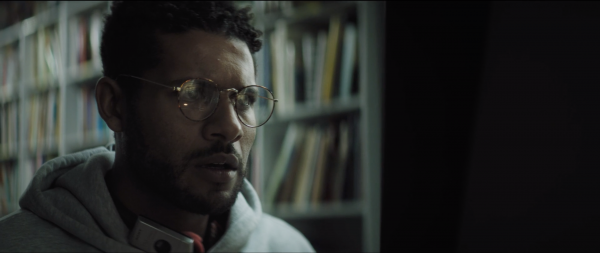
Kelly McNeely: Now, there’s some really strong lines of dialogue, with themes of inequality and paranoia and the depiction of the attitudes then, which is also very clearly reflected now. Three decades later, the terror still holds in a really big way. So how did you explore that and bring that forward? And was it really important to you in the dialogue to be as forthright as possible? To say like, this is what we’re discussing, you need to be aware of this.
Colin Minihan: I feel like it’s important. There’s a Bret Easton Ellis quote that I read, where he kind of takes a shit on stories that overtly have a message. And I don’t think our film is necessarily preachy, but I think anyone who watches it will take away what that message is. And, for me, I would much prefer that the audience take away something versus it having been lost, because it’s so buried in the subtext of the story. So we really wanted to punctuate the theme.
And a big kernel as to where this comes from — and why we were able to set it in the 90s — is because it seems as if every decade or so, there’s a new person to be afraid of. America has this great, calculated way of making a large part of the population afraid of that other. And you see it right now. You saw it in the 90s. And you’re going to see it in the future, unfortunately. And I think that it really almost starts to feel like it’s a way to continue their way of life. So we started thinking about how that’s kind of cult like, and that’s really where the story started to take shape in the way that it did.
John Poliquin: To Colin’s point, we wanted to lean into it. And I think that it was a balance, but even with when Malik says to Aaron, you know, what’s the gay word for an Uncle Tom. That really kind of sums up the relationship. I mean, there’s so many different things going on in the script, but that’s their dynamic is that Aaron is essentially able to pass, or to join into the more cisgendered culture, whereas Malik doesn’t have that opportunity, and Aaron’s constantly gaslighting him, and it’s like, well, whose side are you on, Aaron? And he’s unable to see the danger around him.
Colin Minihan: Because he lived as a straight guy for so long. And he’s not as flamboyant, and he’s more easy to welcome in, and I think that it was an interesting dynamic for the characters.
John Poliquin: Yeah. But I think that with the dialogue, we definitely wanted to dig in. I think it still comes across as quite grounded in terms of the tone and how they’re speaking with each other. But we wanted to make sure that that nobody would miss the themes and that it would be laid out pretty overtly.
Kelly McNeely: And I think [with a Canadian film] setting it in the States is a very wise choice, because there is such a huge thing as far as fearing the other. “There’s always someone else to be afraid of. There always is. And there always will be” is one of the lines from the film…
John Poliquin: Yeah, it’s the groupthink, it’s the way that we maintain the status quo.
Colin Minihan: Their media plays into that like no other.
John Poloquin: It’s also something I think was important for us, too, was the portrayal of [the neighbours], especially Marshall and Tiffany, not being overtly homophobic or overtly racist. It’s more that they’re complicit in the way that they’re benefiting off of this system that is designed to push down the targeted other of the decade. And I think a lot of people are guilty of this, where it’s like, yeah, maybe you’re not racist, or you’re saying racist things, or you don’t feel like you have this hate, but if you’re not actively dismantling or educating yourself to understand how this kind of white supremacy is running our society and that we’re taking advantage of it, then you’re kind of a part of the problem.
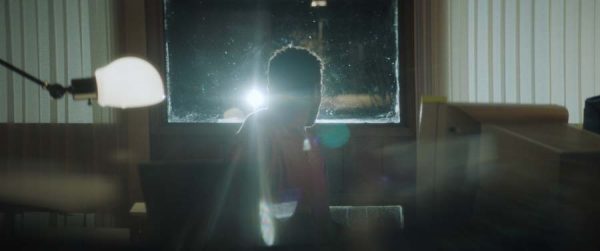
Kelly McNeely: Now, how do you create your own cult? What is the process of deciding what this cult is going to be? Because that seems like that’d be a really enjoyable part of the process.
Colin Minihan: I think you want to leave a lot of questions unanswered. Because as soon as you start writing the cult’s motives, things can start to feel not grounded very quickly. And if the movie doesn’t feel grounded, then the reality of it becomes less and it’s less easy to be on that journey. At least for me. I always love a real world, real time feeling thriller, those are the films that I grew up on. So we try to give you just enough about the cult, and what their motives are and how they’re exploiting. Everything in the movie is really kind of a plant, so that Malik falls into their trap.
John Poliquin: Everything that he sees, they want him to see it, they’re conniving.
Colin Minihan: I remember original drafts where he would find transcripts of his conversations that he was having and stuff like that. And there was this whole moment, but we wanted him to be kept a little bit more in the dark, ultimately. I think the script was a challenging film to write. I think it took longer than a lot of screenplays that I tend to just like, know what they are right away, and this definitely had a slow evolution.
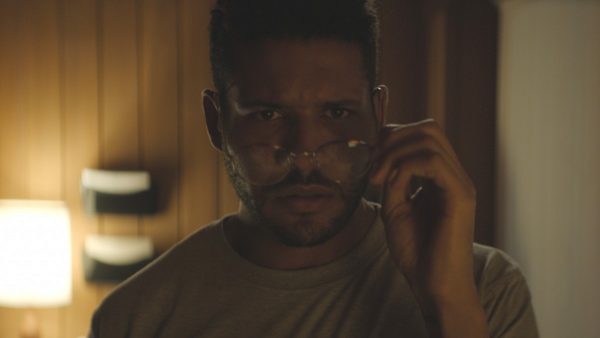
Kelly McNeely: What got you both into horror? How did you first become interested in horror?
Colin Minihan: I think horror is a community of outsiders, and I grew up always feeling very much like an outsider in a town of 2500, people just didn’t feel like I fit in there at a certain age. And I’ve always had a rebellious streak, and horror has a rebellious, anti authority, independent streak to it. That is exciting as an artist. And you’re not dependent on — especially when you’re starting out — you’re not dependent on actors that are a big name value to pool together the resources to make an independent horror movie. I have a poster of my first horror movie — Grave Encounters — on the wall. And that is really the true independent spirit of having a very small group of friends come together with $100,000 and making something that then takes on a whole life of its own.
And horror is great too, because, you know, Spiral is a drama, Spiral is a thriller, Spiral is also a horror movie. But so much conversation is had that goes beyond just, it’s a movie about a cult. It’s so much more, and that’s what’s cool about horror is that you can really explore a lot of different things and different types of characters within it. But still have a traditional narrative.
John Poliquin: Yeah, I’d say that horror has the best fans. It’s a lot of outsiders, a lot of people that feel different, and they see themes that they relate to — or characters they relate to — in horror that might not be portrayed in mainstream or, you know, more prestige genres. But I also think that it’s a really visceral genre, and it allows the audience to really feel a really raw emotion often, and it can lift a mirror up and provoke all sorts of understanding and reactions that are interesting. But it’s also a lot of fun! I got into watching horror with groups of friends as a kid, that was my introduction to horror movies. And it’s a fun genre to watch with people and discuss after and feel something.
Kelly McNeely: I think it’s a great gateway that way, because you get into it when you’re young, just watching the fun stuff. And then you get because you’re older, you can watch stuff that’s a little bit more challenging and a little bit more bleak at times.
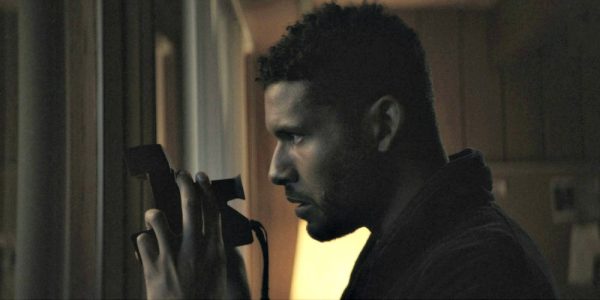
Kelly McNeely: Colin, between films like Grave Encounters, What Keeps You Alive and Extraterrestrial, it seems that you kind of love a bleak ending, which is great. Do you consider the ending of Spiral to be a bleak ending or an optimistic ending?
Colin Minihan: Well, it was much bleaker [laughs].
John Poliquin: I wrote a really happy ending and it got shut down [laughs].
Colin Minihan: You did, you actually put it on the page up until we were shooting. I had to cut it down because it was too fucking big, and I was just like, there’s no way we’re gonna shoot this in 23 days, I’m sorry JP but we go with the bleak ending [laughs].
I think a bleak ending might piss an audience off, and you might lower your Rotten Tomatoes score. But I do think that oftentimes, it leaves you remembering the movie versus just being like, oh, everything’s fucking great in this world. I think that it can elicit a much more layered conversation if it’s coming from an authentic place. But that said, I do think that when you’re in the weeds of a movie, you can start a script and be like, it’s gonna be a happy ending. But then the script will reveal that actually, it doesn’t want to be that. And so I just felt like, man, this movie does not. It’s not the end of this story, you know, so naturally, like I said, 10 years from now there’s going to be someone else that we don’t even know, “that person is bad, and they’re the reason why the middle class doesn’t exist anymore, it’s them that have come in and taken our jobs!”. And so the story is not over.
So this movie just lent itself to wanting to continue that spiral, which is why the movie’s called what it is. Unfortunately other movies are also called this now, but we also came up with a way to create a little bit of hope, I think, which was important. And I think Kurtis [David Harder, director] was like, this is a bleak ending, man. And John, obviously, you’ve tried to write a version of it that was happy, but we found kind of a middle ground where, you know, Malik will use some bread crumbs for the next generation that gives them a shot. And I think that’s a cool message too, because it’s what we do now that might not necessarily affect us, but will affect the next group of people.
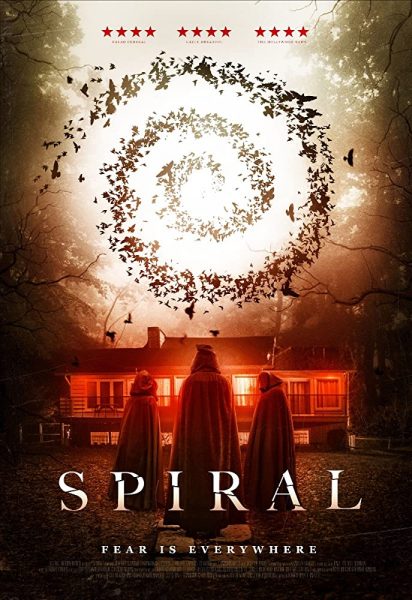
'Civil War' Review: Is It Worth Watching?
Follow our new YouTube channel "Mysteries and Movies" here.
Movies
‘Evil Dead’ Film Franchise Getting TWO New Installments
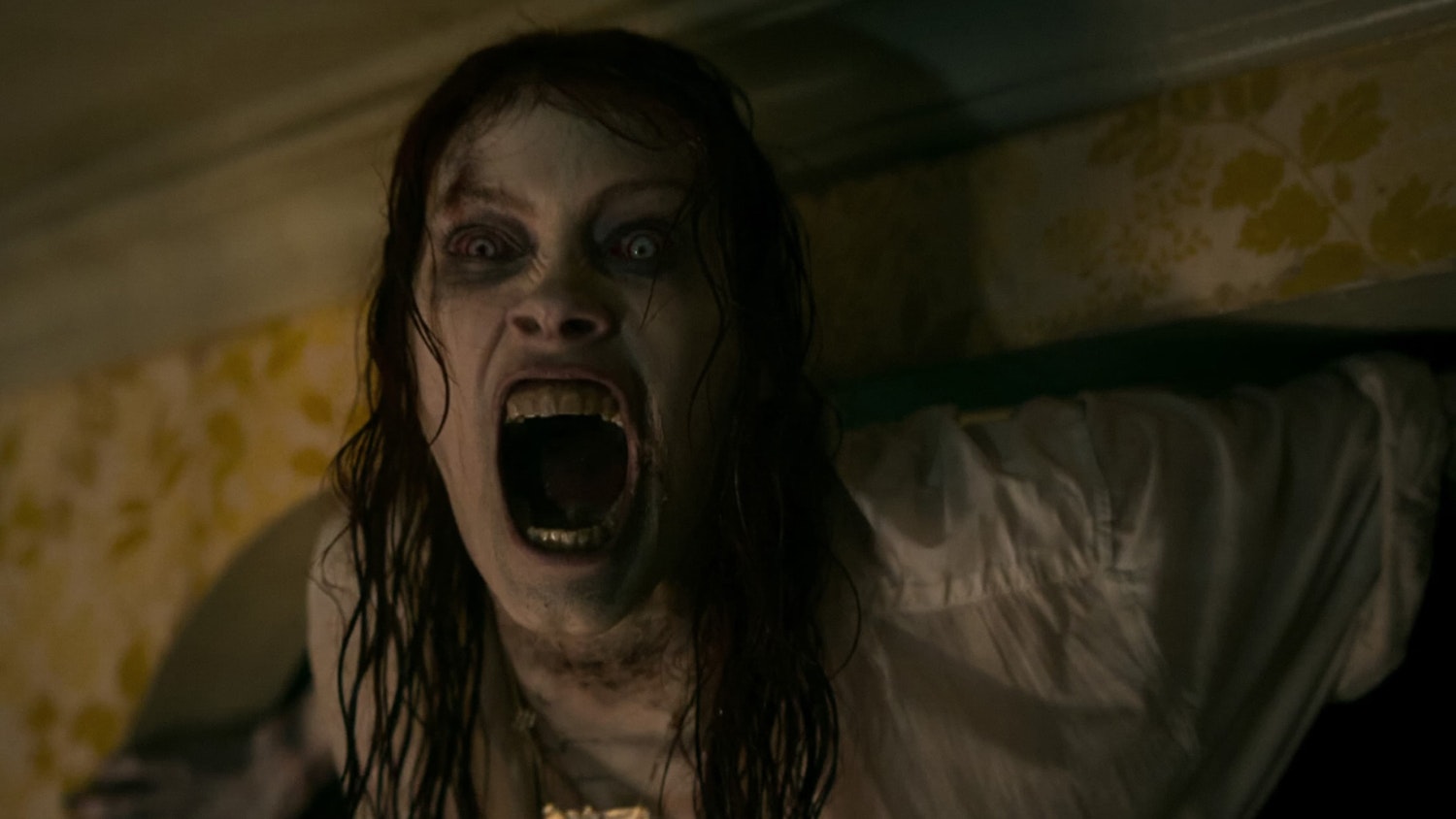
It was a risk for Fede Alvarez to reboot Sam Raimi’s horror classic The Evil Dead in 2013, but that risk paid off and so did its spiritual sequel Evil Dead Rise in 2023. Now Deadline is reporting that the series is getting, not one, but two fresh entries.
We already knew about the Sébastien Vaniček upcoming film that delves into the Deadite universe and should be a proper sequel to the latest film, but we are broadsided that Francis Galluppi and Ghost House Pictures are doing a one-off project set in Raimi’s universe based off of an idea that Galluppi pitched to Raimi himself. That concept is being kept under wraps.
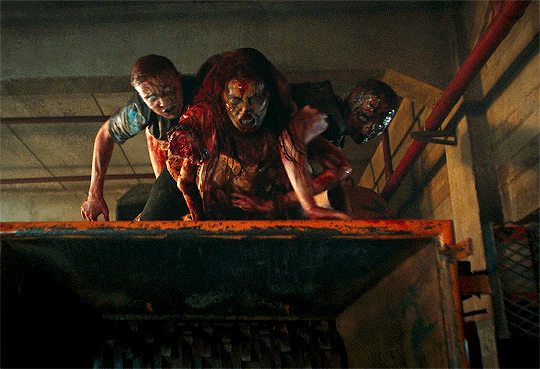
“Francis Galluppi is a storyteller who knows when to keep us waiting in simmering tension and when to hit us with explosive violence,” Raimi told Deadline. “He is a director that shows uncommon control in his feature debut.”
That feature is titled The Last Stop In Yuma County which will release theatrically in the United States on May 4. It follows a traveling salesman, “stranded at a rural Arizona rest stop,” and “is thrust into a dire hostage situation by the arrival of two bank robbers with no qualms about using cruelty-or cold, hard steel-to protect their bloodstained fortune.”
Galluppi is an award-winning sci-fi/horror shorts director whose acclaimed works include High Desert Hell and The Gemini Project. You can view the full edit of High Desert Hell and the teaser for Gemini below:
'Civil War' Review: Is It Worth Watching?
Follow our new YouTube channel "Mysteries and Movies" here.
Movies
‘Invisible Man 2’ Is “Closer Than Its Ever Been” to Happening

Elisabeth Moss in a very well-thought-out statement said in an interview for Happy Sad Confused that even though there have been some logistical issues for doing Invisible Man 2 there is hope on the horizon.
Podcast host Josh Horowitz asked about the follow-up and if Moss and director Leigh Whannell were any closer to cracking a solution to getting it made. “We are closer than we have ever been to cracking it,” said Moss with a huge grin. You can see her reaction at the 35:52 mark in the below video.
Whannell is currently in New Zealand filming another monster movie for Universal, Wolf Man, which might be the spark that ignites Universal’s troubled Dark Universe concept which hasn’t gained any momentum since Tom Cruise’s failed attempt at resurrecting The Mummy.
Also, in the podcast video, Moss says she is not in the Wolf Man film so any speculation that it’s a crossover project is left in the air.
Meanwhile, Universal Studios is in the middle of constructing a year-round haunt house in Las Vegas which will showcase some of their classic cinematic monsters. Depending on attendance, this could be the boost the studio needs to get audiences interested in their creature IPs once more and to get more films made based on them.
The Las Vegas project is set to open in 2025, coinciding with their new proper theme park in Orlando called Epic Universe.
'Civil War' Review: Is It Worth Watching?
Follow our new YouTube channel "Mysteries and Movies" here.
News
Jake Gyllenhaal’s Thriller ‘Presumed Innocent’ Series Gets Early Release Date
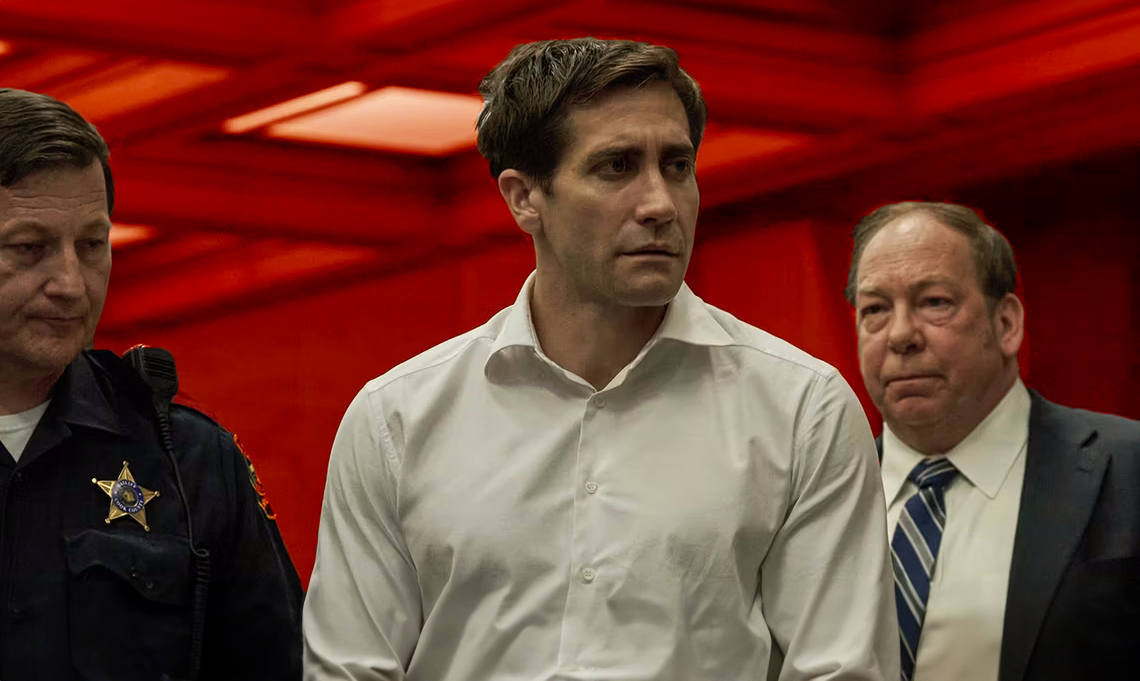
Jake Gyllenhaal’s limited series Presumed Innocent is dropping on AppleTV+ on June 12 instead of June 14 as originally planned. The star, whose Road House reboot has brought mixed reviews on Amazon Prime, is embracing the small screen for the first time since his appearance on Homicide: Life on the Street in 1994.
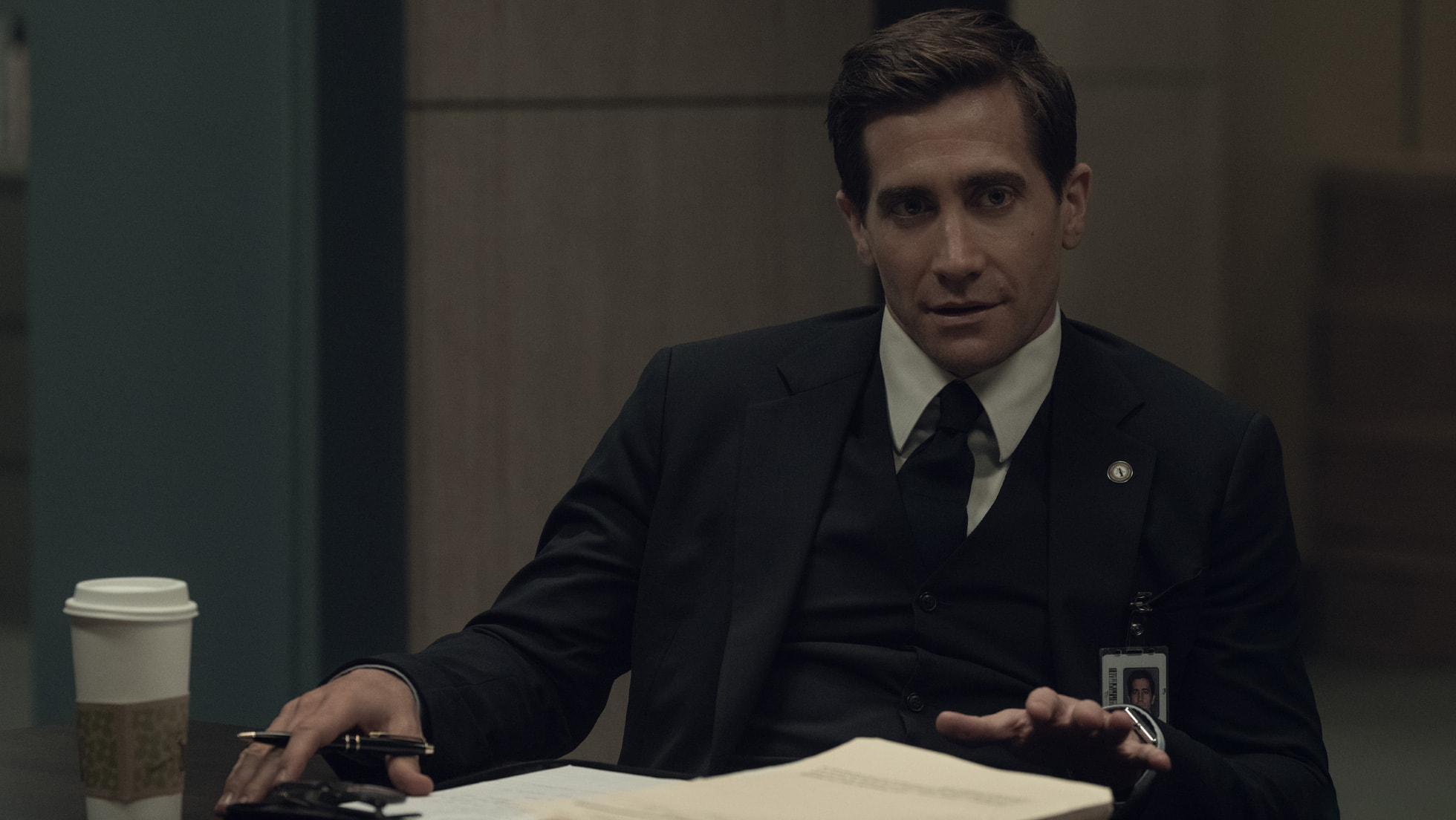
Presumed Innocent is being produced by David E. Kelley, J.J. Abrams’ Bad Robot, and Warner Bros. It is an adaptation of Scott Turow’s 1990 film in which Harrison Ford plays a lawyer doing double duty as an investigator looking for the murderer of his colleague.
These types of sexy thrillers were popular in the ’90s and usually contained twist endings. Here’s the trailer for the original:
According to Deadline, Presumed Innocent doesn’t stray far from the source material: “…the Presumed Innocent series will explore obsession, sex, politics and the power and limits of love as the accused fights to hold his family and marriage together.”
Up next for Gyllenhaal is the Guy Ritchie action movie titled In the Grey scheduled for release in January 2025.
Presumed Innocent is an eight-episode limited series set to stream on AppleTV+ starting June 12.
'Civil War' Review: Is It Worth Watching?
Follow our new YouTube channel "Mysteries and Movies" here.
-
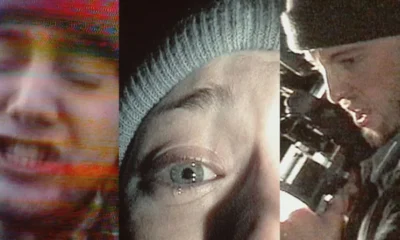
 News7 days ago
News7 days agoOriginal Blair Witch Cast Ask Lionsgate for Retroactive Residuals in Light of New Film
-
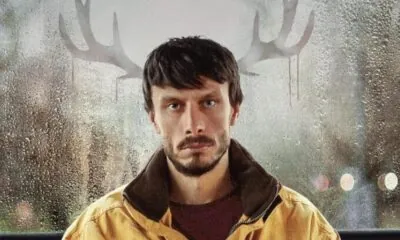
 News4 days ago
News4 days agoPerhaps the Scariest, Most Disturbing Series of The Year
-

 Movies6 days ago
Movies6 days agoNew F-Bomb Laden ‘Deadpool & Wolverine’ Trailer: Bloody Buddy Movie
-
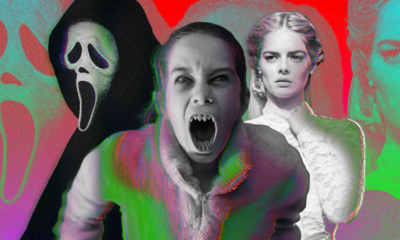
 Lists4 days ago
Lists4 days agoThrills and Chills: Ranking ‘Radio Silence’ Films from Bloody Brilliant to Just Bloody
-
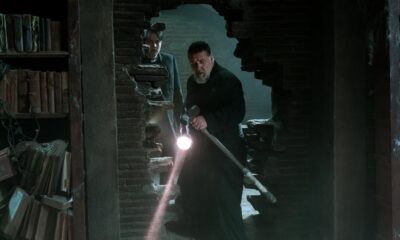
 News6 days ago
News6 days agoRussell Crowe To Star in Another Exorcism Movie & It’s Not a Sequel
-
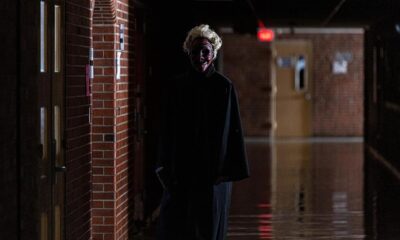
 Movies6 days ago
Movies6 days ago‘Founders Day’ Finally Getting a Digital Release
-
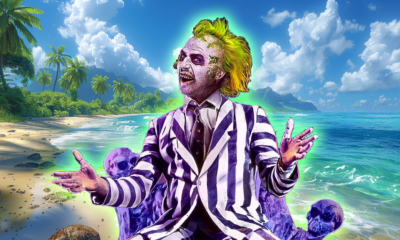
 Movies5 days ago
Movies5 days agoThe Original ‘Beetlejuice’ Sequel Had an Interesting Location
-
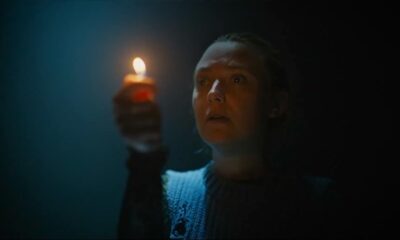
 Movies5 days ago
Movies5 days agoNew ‘The Watchers’ Trailer Adds More to the Mystery
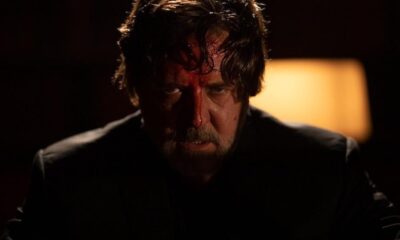



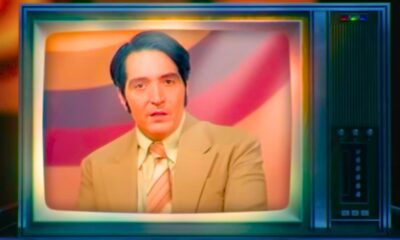


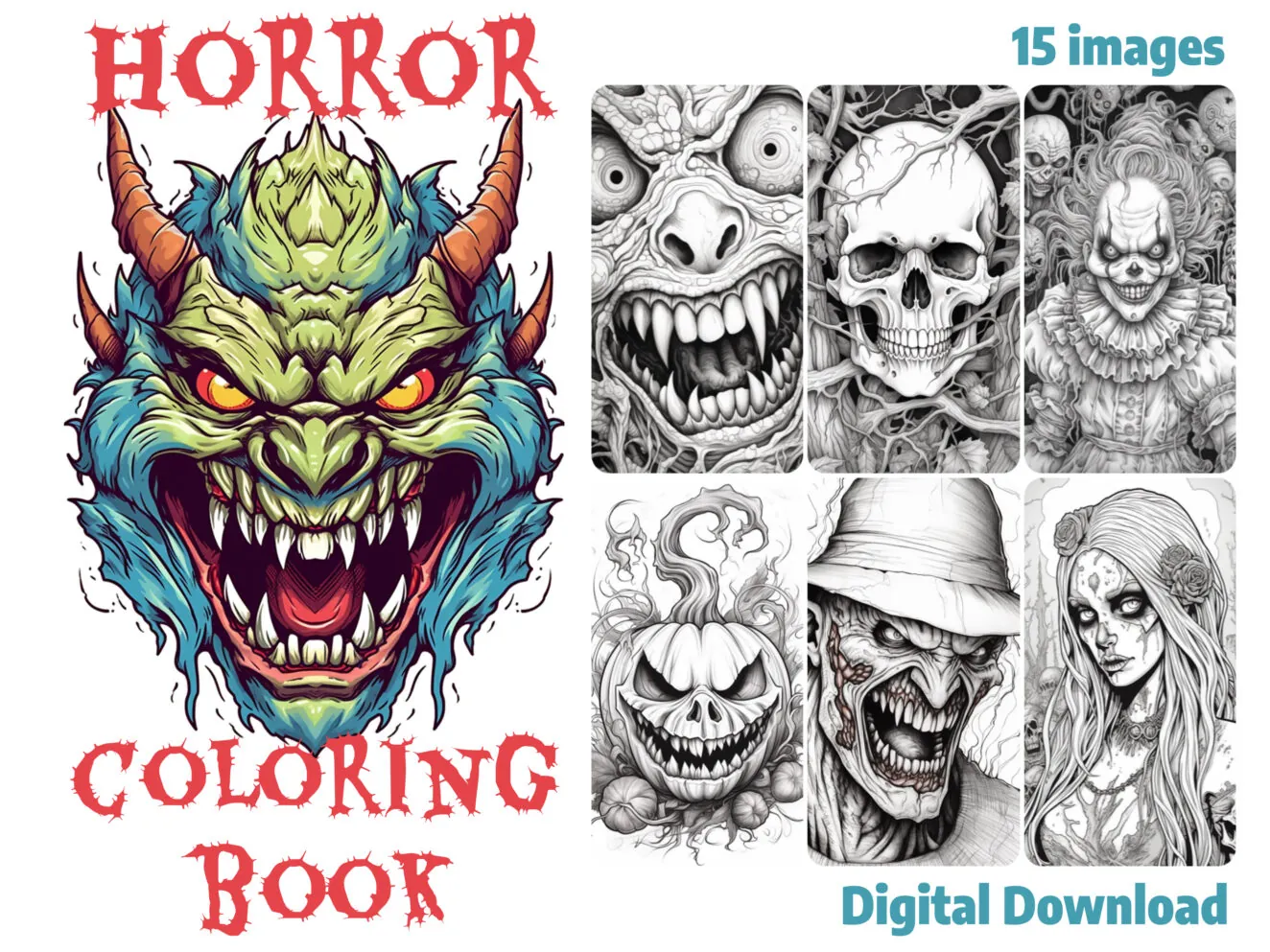
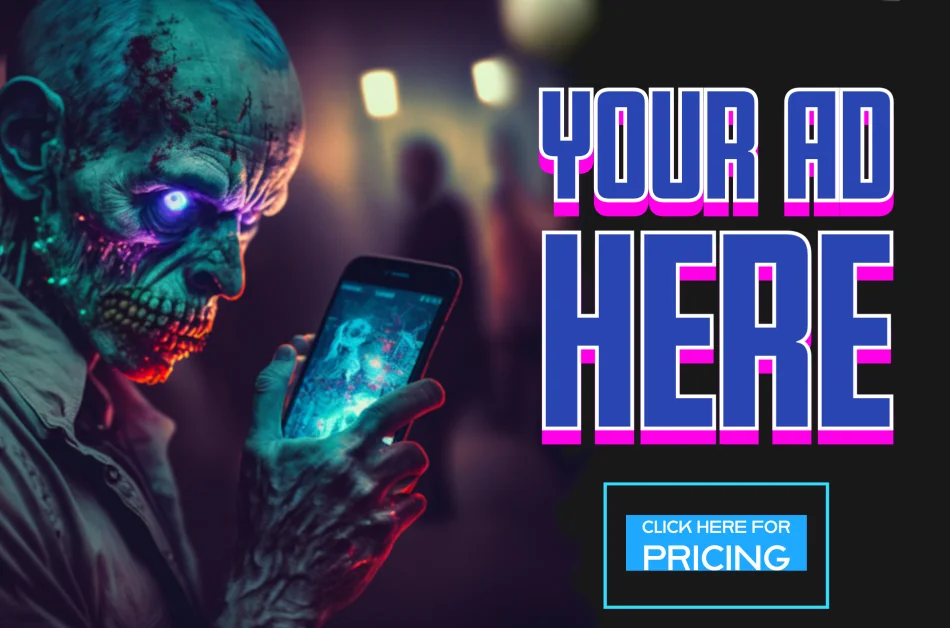


















You must be logged in to post a comment Login